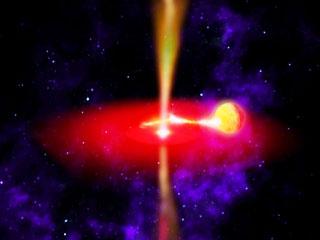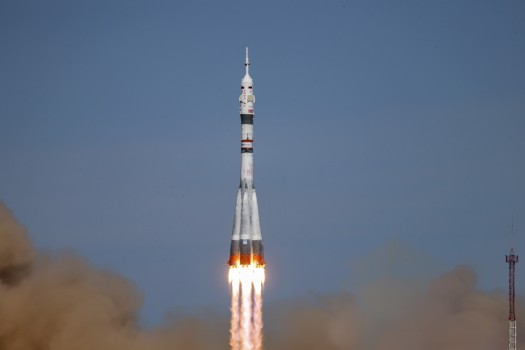
This artist's concept illustrates what the flaring black hole called GX 339-4 might look like. Photo: NASA
PASADENA (BNS): Astronomers have captured rare data of a flaring black hole by using NASA's Wide-field Infrared Survey Explorer (WISE), according to the reports.
The new data has revealed new details about black holes and their blazing jets. WISE has discovered the key measurements of the brightest part of the jets, located at their bases, have been difficult despite decades of work.
According to NASA, the black hole, called GX 339-4, had been observed previously. It lies more than 20,000 light-years away from Earth near the center of our galaxy. It has a mass at least six times greater than the sun.
Like other black holes, it is an ultra-dense collection of matter, with gravity that is so great even light cannot escape. In this case, the black hole is orbited by a companion star that feeds it. Most of the material from the companion star is pulled into the black hole, but some of it is blasted away as a jet flowing at nearly the speed of light.
Observing the jet's variability was possible because of images taken of the same patch of sky over time, a feature of NEOWISE, the asteroid-hunting portion of the WISE mission. WISE data enabled the team to zoom in on the very compact region around the base of the jet streaming from the black hole. The size of the region is equivalent to the width of a dime seen at the distance of our sun.
The new data also allowed astronomers to make the best measurements yet of the black hole's magnetic field, which is 30,000 times more powerful than the one generated by Earth at its surface.
The WISE data are bringing astronomers closer than ever to understanding how this exotic phenomenon works, it said.
 Next Article
Next Article













The Indian Air Force, in its flight trials evaluation report submitted before the Defence Ministry l..
view articleAn insight into the Medium Multi-Role Combat Aircraft competition...
view articleSky enthusiasts can now spot the International Space Station (ISS) commanded by Indian-American astr..
view article